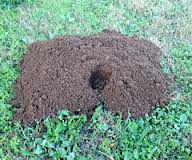Gardening and maintaining a pristine yard is no small feat, especially when dealing with a host of pests that can decimate your landscape. However, the use of heavy chemicals is not always the best solution. If you’re looking for safe and effective ways to protect your yard without compromising the health of your family, pets, and the environment, you’ve come to the right place.
Why Choose Organic Pest Control?
First and foremost, it’s essential to understand the benefits of organic pest control methods.
Environmentally Friendly: Unlike traditional pesticides, organic treatments don’t contaminate soil and water sources.
Safe for Kids and Pets: Organic solutions often lack harmful toxins that can be detrimental to the health of our loved ones.
Maintains Soil Health: By avoiding chemicals, you preserve the natural nutrients and microorganisms in the soil.
Common Yard Pests and Their Organic Solutions
1. Aphids
Aphids suck the sap out of plants, leading to wilted, yellow, and distorted leaves.
Solution: Release ladybugs or lacewings. These beneficial insects are natural predators of aphids.
2. Slugs and Snails
They can be a menace, especially to your tender greens and flowering plants.
Solution: Sprinkle crushed eggshells or diatomaceous earth around your plants. These create a sharp barrier that slugs and snails hate to cross.
3. Caterpillars
While they might transform into beautiful butterflies or moths, caterpillars can chew through plant foliage in no time.
Solution: Introduce beneficial insects such as braconid wasps or sprinkle bacterial insecticides like Bt (Bacillus thuringiensis).
Homemade Organic Pest Sprays
1. Neem Oil Spray
Mix two teaspoons of neem oil with one quart of water and a few drops of dish soap. This mixture serves as a repellent and reduces insect feeding.
2. Garlic and Chili Spray
Blend two bulbs of garlic, six large chili peppers, and one liter of water. Strain the mixture and spray on plants for a potent, natural insect deterrent.
3. Epsom Salt Solution
Dissolve one cup of Epsom salts in five gallons of water. This solution not only deters pests but also provides plants with a magnesium boost.
Benefits of Companion Planting
Certain plants have natural repellent properties, and when paired correctly, they can protect their neighbors. For instance:
Marigolds deter beetles and nematodes.
Basil wards off mosquitoes and flies.
Chives keep away aphids.
By integrating these plants into your garden, you create a holistic environment that deters pests naturally.
Conclusion
Protecting your yard organically requires some patience and a bit of knowledge about the ecosystem. But with these tips and solutions, you can enjoy a thriving, green space without the added toxins. Embrace nature’s remedies and watch your garden flourish in harmony.



0 Comments